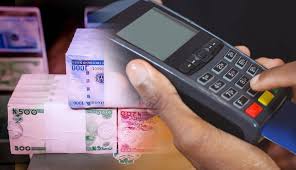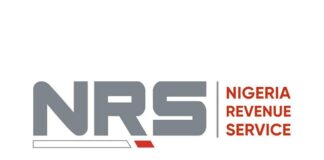Few hours to 2025, Nigerians struggle with PoS high charges as banks’ ATMs remain empty
The scarcity of cash has left many Nigerians who need funds for year-end purchases reliant on PoS operators, who are exploiting this shortage by imposing exorbitant fees for cash withdrawals
As the end of 2024 approaches, many Nigerians find themselves at the mercy of Point of Sale (PoS) operators, as most banks’ Automated Teller Machines (ATMs) across the Lagos metropolis remain empty. Inside the banks, there is little relief, with most institutions turning customers away due to a lack of cash. In rare instances where customers can access cash, withdrawals are often limited to N10,000 or N20,000.
This situation persists despite a recent warning from the Central Bank of Nigeria (CBN) that any bank found not dispensing cash via ATMs would face sanctions. Bright Joseph, a Lagos resident, expressed his frustration: “It’s been frustrating. I’ve gone to three different banks today, and none of them has cash to give. How are we supposed to celebrate the season like this?”
The scarcity of cash has left many Nigerians who need funds for year-end purchases reliant on PoS operators, who are exploiting this shortage by imposing exorbitant fees for cash withdrawals. In some areas of Lagos, a typical PoS transaction now incurs fees as high as N500 for a withdrawal of N5,000, a stark contrast to the N100 or N200 that were standard just a few months ago. For larger amounts, the charges are even steeper, leaving customers with little choice but to pay the inflated rates.
Mr. Benjamin Idowu, a civil servant living in the Ogba area of Lagos, shared his experience: “I had to withdraw N10,000 yesterday, and the PoS operator charged me N1,000. It’s unfair, but what can I do? I needed the cash.” This situation has proven particularly dire for many Nigerians who rely on cash for daily transactions such as transportation, feeding, and small purchases.
While no official explanation has been provided for the cash shortage, stakeholders speculate that it may be linked to several factors, including cash hoarding by individuals preparing for festive spending or a deliberate plan by the CBN to encourage more widespread adoption of digital payments for enhanced traceability and taxation of transactions.
According to a report by Nairametrics, an official from one of the tier-2 banks, who spoke on the condition of anonymity, attributed the cash scarcity to the country’s apex bank. He indicated that the CBN has not been releasing cash to banks as frequently as before, and customer deposits have significantly decreased. “In a situation where you are not getting enough cash from the CBN and customers are not depositing cash, how do we get cash to pay our customers? Banks don’t print money,” he explained. He further questioned, “Why hasn’t the CBN penalized any bank for not dispensing cash until now?”
Amid allegations of a collusion between PoS operators and banks contributing to the cash scarcity, some operators have denied such claims. Mr. Olawale Michael, who operates a chain of PoS shops in Ikeja, stated that PoS operators have also struggled to withdraw cash from banks recently. “There is no truth to the allegations that PoS operators are colluding with banks to create cash scarcity. In fact, in the last two months, I have not withdrawn cash from the bank, yet my businesses are providing cash for people every day,” he said.
When asked how he obtained cash, he explained: “For some time now, we have been working with market women and shop owners, who receive cash daily from their sales. We collect cash from them and transfer the money to their accounts.” He added, “It is a symbiotic relationship because we are also saving them the stress of going to the bank to deposit cash.”
Another Point of Sale (PoS) operator, Mrs. Nkechi, mentioned that she has not been able to withdraw cash from the bank and has instead been sourcing it from a nearby fuel station. She explained that she pays extra to the attendant for every cash withdrawal.
“People are complaining that PoS operators are increasing their charges, but we have our own costs to consider. If I could withdraw cash from the bank, the charges would be standard. However, since I have to find cash elsewhere, I also incur additional fees,” she stated.
In September of this year, the Central Bank of Nigeria (CBN) announced it would sanction banks that fail to dispense cash through their ATMs as part of an effort to ensure there is enough cash in circulation. CBN Governor Yemi Cardoso made this announcement during a press briefing following the 297th Monetary Policy Committee (MPC) meeting in Abuja on Tuesday.
The governor emphasized that all deposit money banks must maintain adequate cash availability for withdrawals. He noted that the apex bank has implemented a monitoring system to ensure compliance, and any bank that does not adhere to this directive will face penalties.
Cardoso reiterated that the CBN’s monitoring and spot-checking system will keep track of banks’ compliance, and those failing to meet the requirements will be sanctioned.
However, as of this report, there have been no reports of any banks being sanctioned for not dispensing cash via ATMs, despite the continued visibility of empty machines across various banks. Read More















